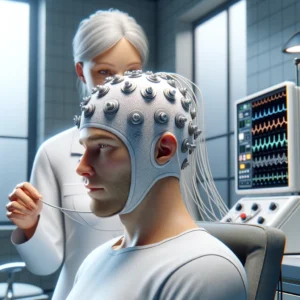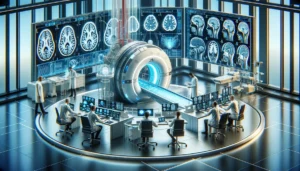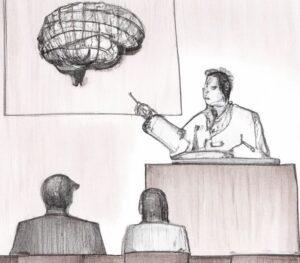A severe and sudden injury to the head may disrupt the brain’s normal functioning. In case of severe head injury, it may damage the brain tissue and interrupt blood flow to brain cells. It may affect consciousness and memory; neurological deficits can cause disorientation. A prolonged period of unconsciousness may lead to coma or death. Sometimes, this traumatic brain injury (TBI) gets cured completely, while in some cases, it might leave behind some functional disabilities in the patient.
What is psychosis after traumatic brain injury, and what are the risks?
Certain brain injuries can affect brain processing and lead to a condition called ‘psychosis.’ In this situation, the patient loses touch with reality. The patients can see, feel, hear or believe in things that are not real. This can be caused by mental illness, physical injury to the brain, stress, or trauma. A psychotic disorder like schizophrenia can last for days, weeks, or even months or years.
The chances of psychosis secondary to traumatic brain injury (PSTBI) are more in patients having a previous history of any congenital neurological disorder. The patients show psychotic symptoms ranging from 2 days to 48 years, depending on the severity of the injury to the brain and the area of the brain affected.
The risks involved in psychosis after the traumatic brain injury depend on various factors. The damage caused to the temporal lobe can lead to delusions and hallucinations. Damage caused to the temporal limbic areas leads to disorders involving seizures.
Patients having a history of pre-existing neurological conditions have increased chances of suffering from psychosis. It is observed in higher proportions in males than female patients as males are more prone to sustain TBI in their childhood. In addition, the male brains are more lateralized than female brains, which also adds to the increased chances of psychosis in TBI patients.
How to evaluate for psychosis in a person with traumatic brain injuries?
The psychosis after TBI can be assessed based on the occurrences and the severity of the damage. It also depends on the alterations in consciousness and memory impairment due to the injury. The doctors can gauge the severity of the psychosis post TBI by using the DSM—5 description for neurocognitive disorders.
Psychosis can be evaluated by performing physical examinations, completing psychiatric check-ups, medical history, and laboratory workup. The patient’s physical examination includes the complete mental status check, neurological testing, cognitive examination, etc. This focuses on the various areas like mood alterations, thought processing, evaluation of abnormal perceptions, delusions, homicidal ideations, insight, judgment, etc. Medical evaluation includes checking the patient’s medical history for reviewing the previous head injury, cerebrovascular disease, seizures, etc.
Treatment options for psychosis following traumatic brain injury
For the treatment of psychosis, it is crucial to detect the early onset or episode of psychosis. This will help in controlling further damage and reducing the severity. Therefore, the majority of the doctors recommend coordinated specialty care (CSC) for the patients. During this, the team helps treat the patient from the time when initial symptoms are observed. The treatment includes a combination of medication and therapy that provides support using social service, education, work, etc.
Doctors prescribe antipsychotic drugs to the patients to ease their symptoms and should be given only under their supervision as they may have specific adverse effects based on the patient’s condition.
Other programs and counseling sessions that help the patients manage psychosis include cognitive-behavioral therapy (CBT) to understand and manage their psychotic episodes. Supportive psychotherapy helps the patients in living with the psychosis positively and healthily. Cognitive enhancement therapy (CET) helps the patient use computer exercise to improve or enhance their thinking and understanding skills.
When to refer someone with post-traumatic stress disorder (PTSD) or psychotic symptoms
Patients with psychosis due to traumatic brain injury also have post-traumatic stress disorder (PTSD). These patients have intense and disturbing feelings and thoughts that last longer and affect their everyday living. This involves their treatment and can lead to more severe conditions. PTSD includes flashbacks, nightmares, fear, anger, sadness, etc. In addition, patients feel detachment or estrangement from their family and friends. In these conditions, the patients can refer to counselors who can help them improve their situation.
Tips on how to manage your mental health if you’re caring for someone else with PTSD or psychotic symptoms
There are different ways to help themselves manage their condition and help patients who have PTSD or psychotic symptoms. These tips include support from peer support groups, recognizing the triggers, relaxation, taking care of physical health, etc.
Psychosis caused by traumatic brain injury (TBI) cannot be cured completely. Still, the evaluation and treatment can help understand the severity and assist the patient in managing their condition and leading a healthy life along with the condition.






